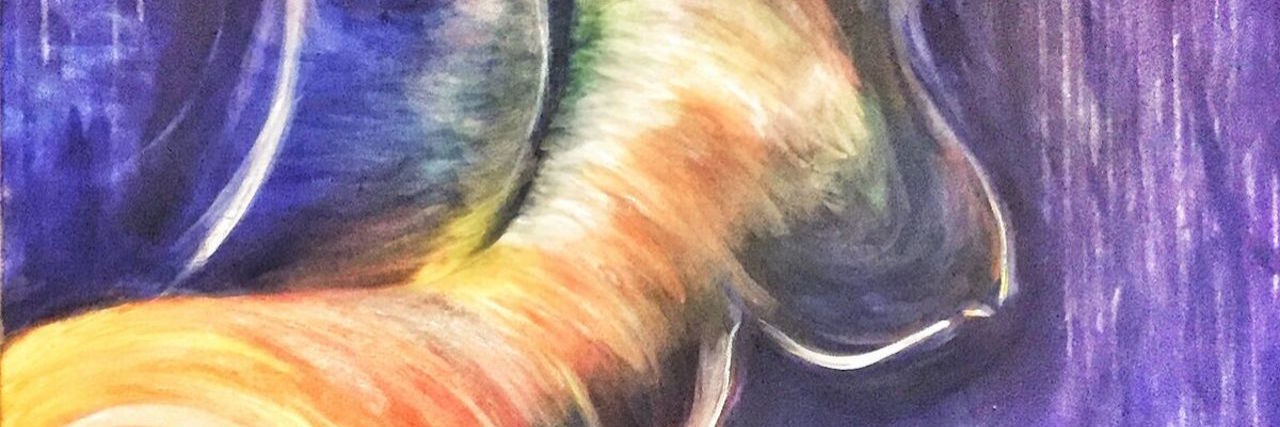We had been dating for five months. I knew I really liked him, and this could potentially become a serious relationship. At the same time, I anxiously knew how much my chronic disease could impact our relationship. I have myalgic encephalomyelitis (ME, also commonly known as chronic fatigue syndrome). It is a very debilitating disease that is invisible to the naked eye, which provides privacy at the expense of credibility. When I have a flare-up, it can be completely disabling. My experience of life becomes an entirely different reality – one where standing and walking three feet feels the equivalent to climbing a mountain.
It was the morning of his 35th birthday, and I had cake ingredients that needed to be prepared first thing. He had arranged plans for me to meet all his friends that evening for dinner, and drinks later at a bar. There was one minor problem though: I could hardly move my body. This was not an entirely new sensation to me, it was the severity that was. I had a gut feeling something was wrong. An ongoing dilemma with severe chronic conditions is knowing whether what you are experiencing is “just a flare-up” or something more serious. It’s a hard judgment call to make, and unfortunately it’s landed me into the ER when I’ve assumed so incorrectly. Having an immune system not as robust as my peers, my body is more susceptible to all sorts of infections. Keeping this knowledge in mind, I had to trust what I was experiencing in my body. I woke my boyfriend up, very concerned.
“You’re just having social anxiety. Do you just not want to come to my party?” he responded.
Anger surged inside of me, the common response when the account of my own body is negated. But there was also fear. The overwhelming fear of rejection. This was a new relationship, and I really liked him. I wanted to show up for him on an important day. The perpetual pleaser inside of me could not be abated. As pernicious as it is sometimes, denial has its uses. I gathered myself as best I could, and made it clear I did want to go. My words should have been enough, but I knew actions spoke louder. I let my insecurities take the wheel in my decision-making.
The entire evening, I fought the sensations of my body. I barely could eat at the meal from overwhelming pain and nausea. I struggled to stand at the bar, hiding my trembling body as best I could, while everyone was chatting and dancing. I became acutely aware how seemingly close in proximity I was to everyone, but how far removed I felt. When my boyfriend uttered for the first time “I love you” into my ear, it fell to the wayside. “How could you love me if you could not even listen to me?” I thought. An old familiar sadness came over me. The sadness I feel when I know the ones closest to me have no clue to the extent to which I struggle. But above all, I remember how I felt when we got home that night. The sensation of relief that came from surrendering – my body into bed, my head onto my pillow. The pretense was over.
Days later I was diagnosed with an active Epstein-Barr virus infection (mono) with concurrent hepatitis; it was not a flare-up. Drinking and trying to eat a fatty meal that night had put me at further risk for more serious complications. I suddenly became aware of how I had betrayed myself, my body and, as a result, my authenticity that night. I put my health on the line, because I was too afraid of the ramifications a “no” might bring. That was not acceptable behavior towards myself.
From that day forward, I vowed every yes had to be aligned with both my body and mind. I also vowed that anyone who could not handle a no did not deserve a yes.
We want to hear your story. Become a Mighty contributor here.


